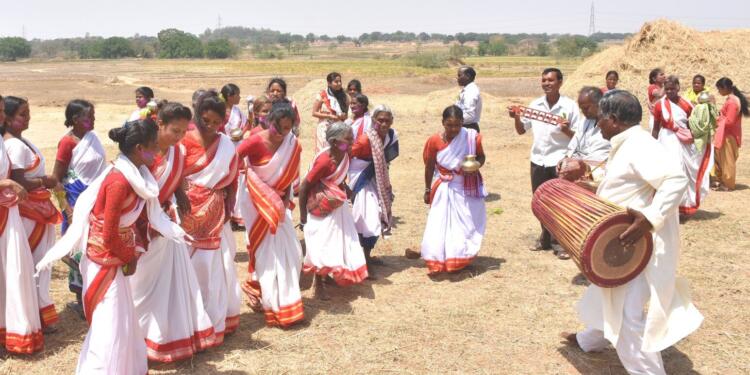Tribals have always dominated the game of politics in Jharkhand. Like other elections, this assembly election in Jharkhand too is seeing the dominance tribal vote brings in electoral politics of the state.
According to the 2011 census, Scheduled Tribes make up more than 26 percent of the total population in Jharkhand which is a large voting percentage demographically to decide the fate of the elections held in Jharkhand be it General or Assembly.
The road to election victory in Jharkhand goes through the path of the hearts of Tribals. Different political parties running in the race of forming their government in the state are trying to get hold of the hearts of the tribal community through different measures.
The Jharkhand Mukti Morcha (JMM) has long held a strong foothold among tribal voters in Jharkhand, largely due to Hemant Soren’s father, Shibu Soren, a revered tribal leader who struggled to get Jharkhand divided from Bihar.
Over the years, the BJP has made multiple attempts to erode the JMM’s unwavering support among the tribal community but has found limited success. Moves like appointing tribal leader Babulal Marandi as the Jharkhand BJP President and even electing Draupadi Murmu, a tribal, as President under the BJP-led government have not significantly boosted the party’s tribal voter base in Jharkhand.
In the 2019 general elections, BJP could only get hold of 2 seats out of 28 that are reserved for the Scheduled Tribes. This trend continued in the 2024 general election, even after the arrest of JMM leader Hemant Soren on corruption charges. The saffron party lost all five ST-reserved Lok Sabha seats in Jharkhand.
This is enough to get a picture of the strong tribal voter base the Jharkhand Mukti Morcha enjoys. But the bigger question arises: did JMM ever cared for the tribals? Did Hemant Soren ever try to make the life of tribals easy? Did the government of JMM ever try to keep the tribal community and their lands safe from external threats??
The answer to the questions is a big NO. Though JMM has tried to portray itself as a champion of tribal rights, the party has done no good for the population. The JMM and its leader Hemant Soren, has consistently demonstrated a tendency to view tribals primarily as mere voting numbers to fulfill their vested political interests. Let us see how JMM compromised the tribal community for their political gains-
Christian Conversions of the tribal population-
The state of Jharkhand has become a fortress of the Christian Missionaries whose primary target is the Scheduled tribes residing in the state. Christian Missionaries have minted a successful story in jharkhand with a good population of Christians most being converted from the tribal community.
In Jharkhand, socio-economic challenges faced by tribal communities, including poverty and limited access to education, make them vulnerable to Christian missionary outreach. Many tribals are drawn to these opportunities in search of better living standards. Missionaries in return of providing health care and educational services to tribals ask them to accept Christianity.
In many areas, the tribal community has resisted attempts at conversion, yet the Hemant Soren government has taken no steps to address this issue, nor has the JMM made any statements acknowledging the situation.
The RSS has consistently opposed religious conversions among tribal communities. For decades, the Akhil Bharatiya Vanvasi Kalyan Ashram, an organization affiliated with the RSS, has concentrated on tribal welfare by promoting education, healthcare, economic development, and cultural initiatives to preserve and support tribal identities.
Love and Land Jihad
In recent years, there has been a noticeable increase in cases where tribal women in Jharkhand are lured into entering relationships or marriages with Muslim men. Reports indicate that Islamist organizations are exploiting these personal relationships as a strategy for land acquisition.
By marrying tribal women, Muslim men can circumvent legal restrictions imposed by the Chota Nagpur Tenancy Act (CNT) and Santhal Parganas Tenancy (SPT) Act, which prohibit the sale and purchase of tribal land to non-tribals. Such marriages create a loophole, allowing these organizations to access tribal land without violating the law directly.
This alarming trend not only threatens the integrity of tribal land rights but also poses a significant risk to the cultural identity of tribal communities. JMM again has been mum in highlighting steps upon these issues threatening the Tribal community.

























